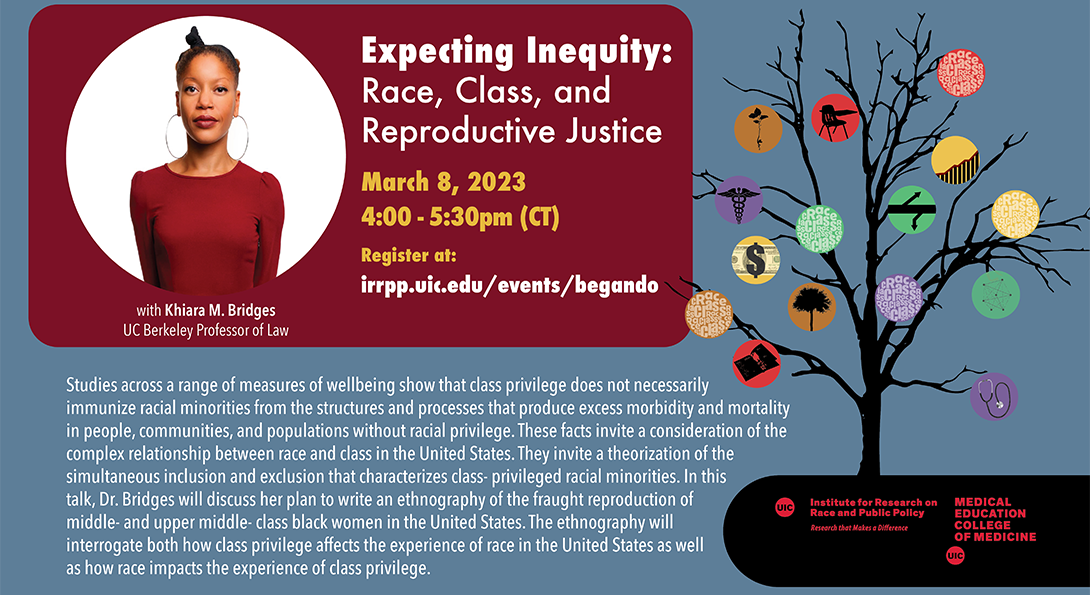Expecting Inequity: Race, Class, and Reproductive Justice

Embodied Inequalities Event
About the event:
Studies across a range of measures of wellbeing show that class privilege does not necessarily immunize racial minorities from the structures and processes that produce excess morbidity and mortality in people, communities, and populations without racial privilege. These facts invite a consideration of the complex relationship between race and class in the United States. They invite a theorization of the simultaneous inclusion and exclusion that characterizes class- privileged racial minorities. In this virtual talk, Dr. Khiara M. Bridges will discuss her plan to write an ethnography of the fraught reproduction of middle- and upper middle- class black women in the United States. The ethnography will interrogate both how class privilege affects the experience of race in the United States as well as how race impacts the experience of class privilege.
Registration is required for the event. Please click on the RSVP button below to register for the event. An email with a link to the webinar will be sent to you.
For access needs or questions, please email us at irrpp@uic.edu.
About the series: The Embodied Inequality: Unpacking the Impact of Race & Racism on Health series builds on important work documenting extensive health disparities. This interdisciplinary lecture series explores why race is so consequential for health outcomes and how scholars, practitioners, and community groups can intervene to improve health outcomes for vulnerable communities.
The Annual Joseph S. Begando Keynote Lecture sponsored by the Department of Medical Education brings distinguished scholars in the Health Humanities to the UIC community to explore pressing social issues relating to health, medicine, disability, and illness.